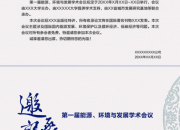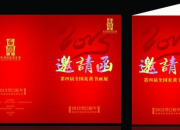小学需要的感谢信格式
时间:2021-08-31以下是为大家整理的关于六级作文感谢信格式的文章,希望大家能够喜欢!
六级作文感谢信格式篇一:英语六级作文
作文---应用文部分
根据考试大纲的要求,六级考生应能写不同类型的应用文,以及一般描述性、叙述性、说明性或议论性的文章。考生的作文必须很好地完成试题规定的任务。包括所有的要点;使用丰富的语法结构和词汇;语言自然流畅,语法错误较少;有效地采用多种衔接的手法,文字连贯,层次清晰;格式与语域恰当贴切。对目标读者完全产生预期的效果。(指在书面和口头表达中根据不同的交际对象,所采用的话语方式,即正式、一般、非正式的话语等)。在应用文写作中,要求考生根据所给情景写出一篇应用性短文,包括私人和公务信函、便笺、备忘录、摘要、报告等。应用文都有一定格式,但了解格式只是应用文写作的最起码要求,这既需要具有熟练运用语言文字的基本功,同时又需要有根据既定情景迅速构文的能力。因此,考生对这一部分应给予足够的重视,在复习过程中要针对应用文写作做足量的专项练习。
在此,先将写信应该注意的问题作一个简单的说明。先将写书信应该注意的问题作一个简单的说明。
一:信头(Heading)
指发信人的单位名称、地址、发信日期。考试时候不要求写出。
格式:从信纸的上部中央往右写,第一行写单位名称,第三行写门牌号码、街名,第三行写市名、省名、国名,第四行写发信日期。学生写信时第一行写班级名称,第二行写学校名称,第三行写市、省名,第五行写国家名称,第六行写发信日期。国内信件国名可以不写。 二:信内地址(Inside Address)
指收信人的姓名、单位和地址。考试时候不要求写出。
格式:信头下隔一二行,从左边开始写,第一行写姓名、头衔,第二行写单位名称,第三行写门牌号及路名,第四行写市名、省名及邮政号码,第五行写国名。
商业往来信件及公函必须写信头和地址。亲友、熟人之间的信可不写信内地址,信头处写发信日期就行了。
三:称呼(Salutation)
格式:信内地址下隔一二行写称呼,其左要与信内地址第一行对齐。对不相识的男子,单数常用 “Sir”, “Dear Sir”, 或 “My Dear Sir”;复数常用 “Dear Sirs” 或“Gentlemen”。 对女子,单数常用 “Madam”,“Dear Madam”或“My Dear Madam”;复数常用“Mesdames”或 “My Dear Mesdames”;对比较熟识的男子,普通称 “Dear Mr. ……”; 女性通常称“Dear Mrs. (或Miss)……”。熟人和亲人常直呼其名,不用姓氏(以 “Dear”为例):1)“Dear David”;2)“My dear David”;3)“My David” 4)“My dearest David”;5)“My Dearest”;6)“Darling David”;7)“My Darling”;8)“My very own darling”等。有头衔的可把头衔写放在名字前,如“Prof Wang”, “Dr Lin”等。
四:正文(Body of Letter)
格式:称呼下面隔两行开始写正文。每段第一个字母要缩进3至5个字母的空格。正文是信的主要部分,内容要简单明了,一般不用同汉语信一样的“你好(how are you?)”之类的词。 五:结束语(Complimentary Close)
结束语是写信人对收信人的谦称,写在正文下面二三行处,从中间写起,第一个词不达意的开头字母要大写,末尾用逗号。给不相识的人可用:
“Yours truly”或“Truly yours”
“Yours faithfully”或“Faithfully yours”
“Yours Sincerely”或“Sincerely yours”
给上级或长者可用:
“Yours respectfully” 或 “Respectfully yours”
“Yours obediently”或 “Obediently yours”
“Yours”, “Yours ever”, “Ever yours”, “Yours as ever”或 “Yours sincerely”
给亲属或挚友的信可用:
“Yours affectionately”, “Lovingly Yours”, “Your loving son(child, sister…)”, 或”Yours devoted friend”等。结束语末尾要用逗号。
六:签名(Signature)
即写信人署名。一般情况下,把本人姓名签在结束语之下。考试时候统一写为“Li Ming”。
书信题写作五点基本结构:
开门见山说意图 --- 首段
咨询建议一二三 --- 中间段
不同内容可分段
感谢客气不可少 --- 尾段
期盼回信成老套
即:信函写作步骤:
1. 礼貌的称呼语: Dear,
2. 信件主体第一段:相关背景 + 写信的目的(开门见山说意图)
相关句+主题句(有时两句可合二为一)
3.信件主体第二段:根据提纲扩展主体段落(咨询建议一二三,不同内容可分段) 主题句+扩展句1+扩展句2+扩展句3
4.信件主体第三段:表明观点,结束书信主体(感谢客气不可少,期盼回信成老套) 结尾句
5.寒暄句+落款: Yours sincerely,
(一)开 头 段:
1、告知对方你的身份(假如对方不认识你)
Dear Sir/Mr. Prometheus,
I was a student at your college, eolled in Philosophy Department.
/ I am a … at your …
/ I am a … at your college, eolled in the … course.
/ My name is …, I am ….
2、问候收信人(假如他/她是你的朋友)
Dear Prometheus,
Hello/Hi. How are you? / I hope everything is fine. / How are things going with you?
/ How are you getting on in……?
3、解释写信的原因
(1)致谢:
I deeply appreciate your courtesy and I hope to reciprocate(回报) your favor when the
opportunity arises.
/ I am greatly indebted to you for…….
/ Thank you for your letter about studying in Canada.
/ I am writing to you to express my heartfelt gratitude.
/ I am writing to tell you how grateful I am for…….
/ I would like to thank you most sincerely for…….
(2)抱怨:
I am writing to complain about the poor service at your dining-room.
/ I am writing to express my dissatisfaction with/at …
/ I wish to make a complaint about…….
/ I am writing to draw your attention to…….
/ I am afraid I have got a complaint about…….
(3) 致歉:
/ I am writing to you because I am unable to…….
/ I am terribly sorry that…….
/ I would like to express my apologies for not being able to…….
(4)咨询:
I would be grateful if you would be so kind as to provide me with certain essential
information regarding the following aspects.
/ I would like to obtain/request/seek/inquire about some information about…
/ I am writing to ask if you can do me a favor.
/ I would like some detailed information on/about……
(二) 结 尾 段:
1、发出请求
(1) Please give this matter your immediate attention.
(2)I would very much appreciate it if……as soon as possible.
(3)Please render me some valuable advice which is conducive to my final decision.
2、提供帮助
(1)I hope these ……will be helpful, and please feel free to contact me for more information.
(2)……will be taking over responsibility for you and if you should need any assistance,
she/he will be pleased to help you.
3、再次表示歉意或感激
(1)Thank you for your kind assistance.
(2)Please accept my heartfelt thanks and deepest gratitude, now and always.
(3)I am sorry that I cannot……, and trust that you will understand.
(4)In addition, let me apologize for any inconvenience I may have caused.
(5)I shall feel obliged by a reply at your earliest convenience.
(6)Once again, I am sorry for any inconvenience caused.
4、期盼回信
(1)I look forward to your prompt response.
(2)Looking forward to a prompt reply.
(3)I expect to hear from you very soon.
(4)I hope to receive your reply shortly.
(5)I am already eagerly awaiting your reply to this first letter.
(6)RSVP. 请回信 repondez s?il vous plait (Fr): please reply (written on invitations) 常用句型:
一、邀请信:
1、I"d like ...to come to dinner
非常希望...共进晚餐
2、request the pleasure of
恭请...
3、The favor of a reply is requested
敬赐复函 4、May I have the honour of your company at dinner? 敬备菲酌,恭请光临 5、Thank you for inviting us to dinner
谢谢您邀请我们共进晚餐
6、I hope you"re not too busy to come.
我期望您会在百忙中光临
7、The reception will be held in ...,on ...
招待会定于...在...举行
8、We sincerely hope you can attend
我们期待您的光临
9、We are looking forward to ...
我们期待着....
10、We have decided to have a party in honor of the occasion
为此我们决定举办一次晚会
11、Please confirm your participation at your earliest convenience
是否参加,请早日告之
二、感谢信:
1、Thank you very much for ....
十分感谢...
2、Many thanks for your ... 非常感谢您... 3、Please accept my sincere appreciation for ... 请接受我对...真挚的感谢
4、I am truly grateful to you for ...
为了...,我真心感激您
5、It was good (thoughtful) of you ...
承蒙好意(关心)...
6、You were so kind to send ...
承蒙好意送来...
7、Thank you again for your wonderful hospitality and I am looking forward to seeing you
soon.
再次感谢您的盛情款待,并期待不久见到您
8、I find an ordinary "thank-you" entirely inadequate to tell you how much...
我觉得一般的感谢的字眼完全不足以表达我对您多么地...
9、I sincerely appreciate ...
我衷心地感谢...
10、I wish to express my profound appreciation for ...
我对..深表谢意
11、Many thanks for you generous cooperation
咨询信:
咨询信一般结构如下:
开头:自我介绍,表明写作目的
正文:提出咨询内容
结尾:真诚的表示感谢
你希望进入一所国外著名大学学习,请写一封咨询信,信的内容包括:
1. 咨询申请资格并简单介绍自己的情况;
2. 询问学习费用
3. 询问住宿情况
Writing procedure:
1. 写信目的
I would be grateful if you could supply/provide me with the following information.
I am anxious to obtain information about…
Would you be kind enough to send me some information about…?
Could you please supply me with some information about…?
I am writing to inquire about (the details of)…
2. 内容(三个问题)
What qualifications do I need for the study at your university?
How much are the tuition fees?
What is the situation as regards accommodation?
3. 盼望回复
I look forward to your early reply.
I would appreciate your early reply.
Your early response will be appreciated.
Example:
Dear Sir or Madam,
I am a Chinese student and wished to study at your prestigious (有声誉的,一流的) university. My plan is to start my courses next term, and I would be grateful if you would be kind enough to provide me with certain essential information. (写信目的)
First, what qualifications do I need for the study at your university? I already have a bachelor?s degree from Southwest University of Political Science and Law, but I wonder if there are any further academic requirements. (问题一)Second, how much are the tuition fees? Although I intend to be self-supporting, I would be interested to know if there are any scholarships available for international students. (问题二) Third, what is the situation as regards accommodation? (问题三)
I look forward to your reply and to attending your esteemed university soon. (盼望回复)
假设你是合肥工业大学的一名学生,名叫魏芳,希望毕业后去美国普林斯顿大学继续深造,现在写一封信给对方,询问入学申请相关事宜。信件内容包括:
1. 你的个人信息
2. 你选择普林斯顿大学的原因
3. 索取相关的申请表等











